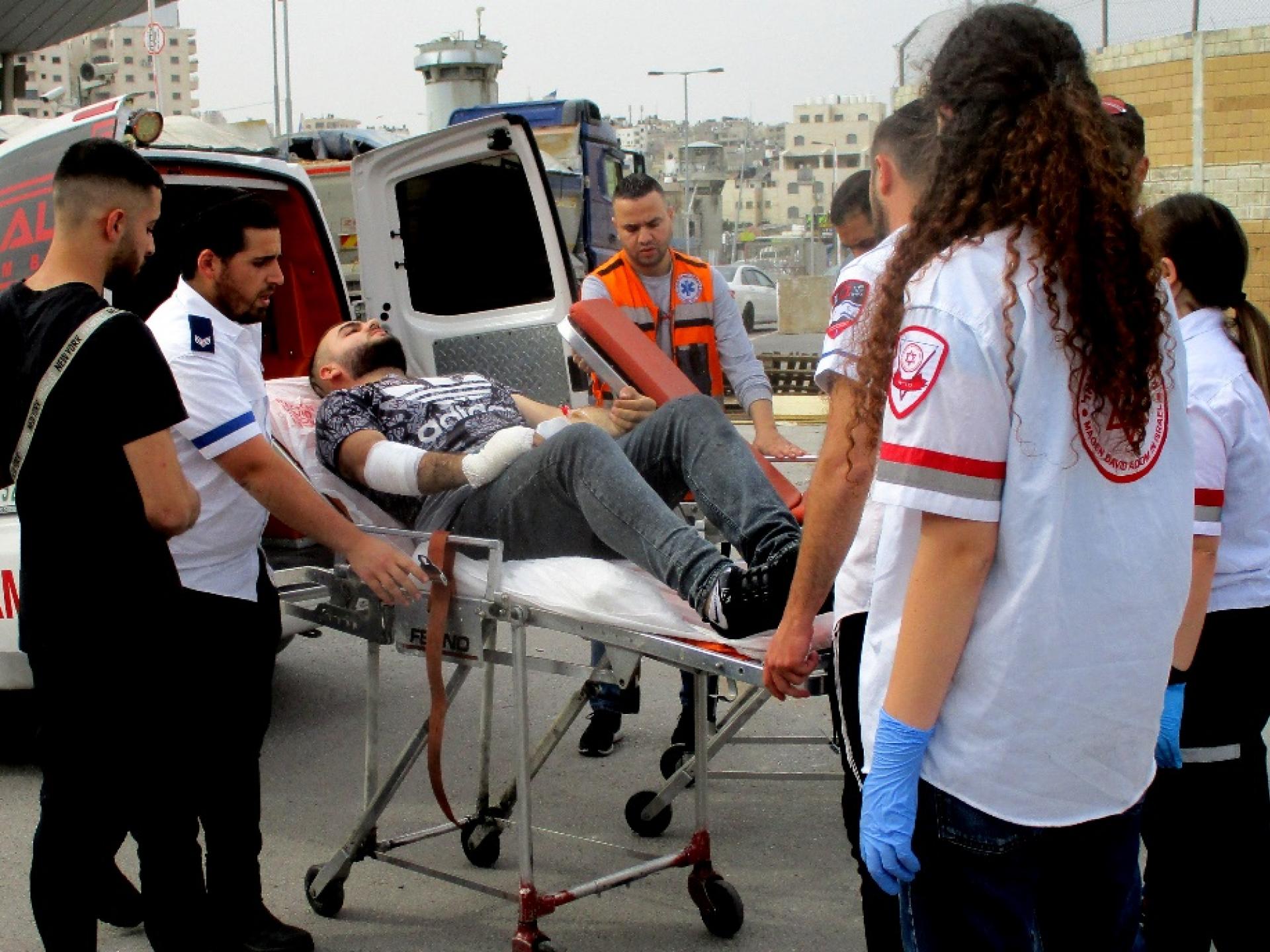The residents of Kafr 'Aqab fall between the chairs
As far residents’ rights, the villagers of Kafr ‘Aqab are apparently preferred to the inhabitants of nearby Jerusalem neighborhoods. However, some blessings become curses, there are areas of life or death in which they fall between the chairs and are discriminated against because their home happens to be located on the dark side of the apartheid wall.
On the up side – most of the Kafr ‘Aqab villagers hold blue (Israeli) IDs, considered permanent Israeli residents who enjoy freedom of movement in comparison with their brothers who hold green (Palestinian) IDs, and are entitled to medical treatment in the best of Jerusalem’s hospitals.
On the down side, although they are careful to pay municipal taxes for fear that their residents’ rights be sequestered, as for police, mail and sanitation services their situation is grim. The city’s employees refrain from doing their duty and supplying municipal services, claiming security fears.
As for medical treatments, the villagers fall between the chairs: between the Palestinian Authority that is not entitled to provide such services in spite of their geographic closeness, and the distance to Israeli hospitals which makes reaching them – at times – too late.
That’s how it was during the pandemic, when five members of one family from Kafr ‘Aqeb were ill with Covid 19 and the Israeli hospital teams did not dare cross the wall. As for Food – it was provided to them by the Tanzim men who placed food packages on their doorstep.
Why am I writing all of this? Because the fellow on the stretcher is a Kafr ‘Aqeb villager was injured in a traffic accident. He received primary treatment in a clinic in his residential neighborhood, but in view of his condition doctors recommended he be hospitalized. However, reaching Jerusalem from Kafr ‘Aqeb is not direct and swift, for a Palestinian ambulance may not cross Qalandiya Checkpoint, and in order to reach it the wounded and the Ramallah medical team waited for a long time for the Jerusalem ambulance, and when it arrived and the soldiers confirmed that all its papers were in order was the injured man transferred and continued his way to Hadassah Hospital.
Crossing the Qalandiya Checkpoint in an uncrowded time of day, with all the inspections and checks involved, is supposed to take a normal person no more than ten minutes. But that day, this time-theft was such that its end could not be guessed.
When I entered the first room, the one leading to the metal-detector check, I joined a line of over fifty people – men, women and children - winding like a snake, standing with endless patience and waiting for the gate to open and lead them to the armored glass window of the girl-soldiers. However, the gate would not open.
As minutes went by I lost my patience, approached the blocked gate and managed to get the attention of the girl-soldier on the other si8de.
- I yelled, what’s going on?
- You speak Hebrew?
- Yes.
- Something’s not working.
- Well? When will you open the gate?
- It’ll take more time. You can cross in the vehicle track.
- And what about them? I asked, pointing to the people around me.
- Not them. It’ll take more time.
Time did not stop, nor did the human stream, and the place had become crowded, suffocating, a kind of human cage.
I vacated the half meter I had taken up and got out, using my privilege, joined the car of a woman and crossed the checkpoint.
And what about them? I have no idea how long they had to stand facing the locked gates .
.


